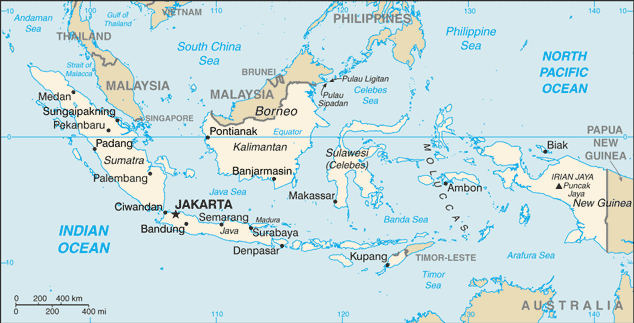The massacres were precipitated by a botched coup on September 30, 1965 during which six anti-communist generals were kidnapped and murdered. This appeared to be a communist attempt to take control of the country, and although there is a debate about the PKI’s actual involvement, military propaganda falsely claimed that the PKI was about to begin a campaign of murder. This galvanized the PKI’s many enemies, including large landowners afraid of land redistribution and religious parties afraid that communism would bring atheism. In the name of anti-communism, the United States gave the Indonesian military the names of suspected communists.
The killing began in the capital, Jakarta, soon after the failed coup and spread across the country. Different regions experienced the genocide differently, but all areas saw the targeting of PKI members and suspected sympathizers. In many areas, the killing was precipitated by the arrival of army units, which provided weapons, official backing, and information to civilian militias. Even those who were not strongly anti-communist were encouraged to participate in order to prove they were not communists. Especially at the beginning of the killings, many PKI members believed that following militia orders would allow them to survive. When this proved false, a guerilla resistance eventually developed, but it was not able to stop the violence.
Much of the killing was done up close with hand-held weapons, and mutilation was common. This was especially devastating because local beliefs hold that mutilation of the body also mutilates the soul. Those who were not killed were imprisoned, sometimes for many years after the genocide, and faced continued persecution even after release. The government of General Suharto, who took power after the massacres, encouraged reports of high death tolls as an additional means of terrorizing the population and used the threat of a PKI return to justify continued repression.
The widespread participation of civilians led after the genocide to a broad sense of collective responsibility that suppressed calls for justice. Under Suharto, genocide perpetrators were even hailed as heroes. After Suharto’s fall, a National Commission for Human Rights did conduct an investigation that confirmed military responsibility, but this has not led to major action or trials of alleged perpetrators.
Sources:
Cribb, Robert. “The Indonesian Massacres.” In Century of Genocide: Essays and Eyewitness Accounts, edited by Samuel Totten and William S. Parsons. 3rd ed. New York: Routledge, 2009.
Jones, Adam. Genocide: A Comprehensive Introduction. 3rd ed. London: Routledge, 2017.

Source: CIA World Factbook: https://www.cia.gov/library/publications/the-world-factbook/geos/id.html

No comments:
Post a Comment